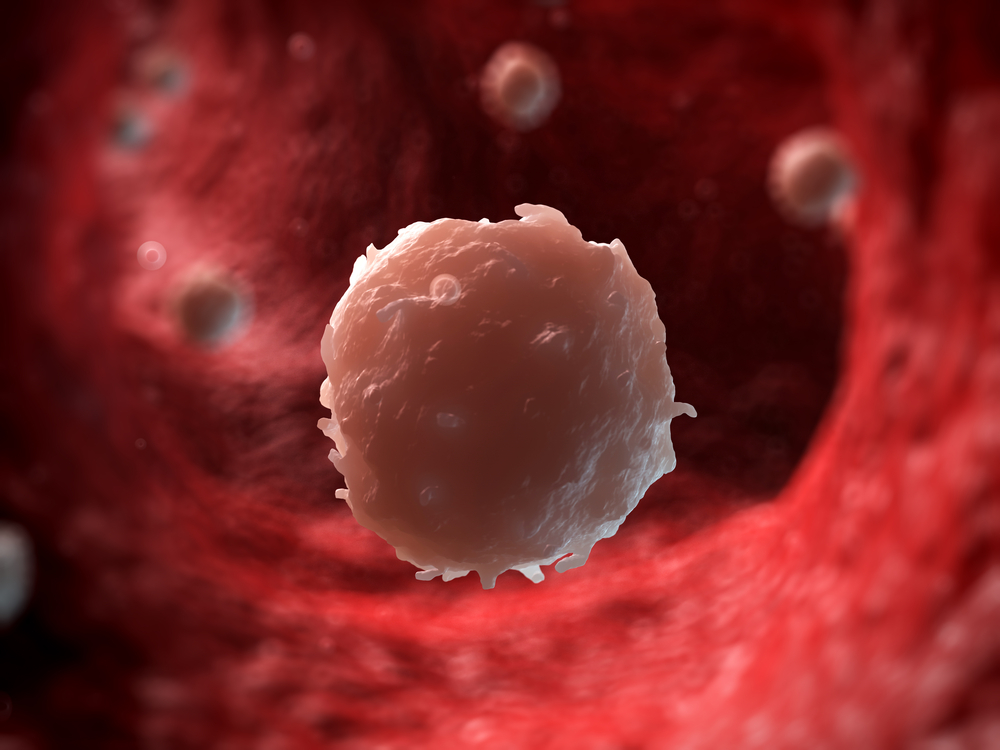In a new study entitled “Adoptive transfer of activated marrow-infiltrating lymphocytes induces measurable antitumor immunity in the bone marrow in multiple myeloma” researchers at the Johns Hopkins Kimmel Cancer Center showed the results of a pilot clinical trial where patients with multiple myeloma treated with their own immune cells, specifically marrow infiltrating lymphocytes, showed a significant decrease in tumor burden and prolonged cancer-free periods. These findings hold a big promise for other types of hematologic tumors, but also solid tumors. The study was published in the journal Science Translational Medicine and is considered the first clinical trial of its kind.
Adoptive T-cell therapy (ACT) is a strategy characterized by the isolation and then in vitro expansion of patients’ tumor specific T cells with the aim of injecting them back into patients, achieving greater numbers and enhancing the immune system’s response against the tumor. A successful ACT approach, however, requires the activation of tumor-specific T cells that, when injected back into patients, can target the tumor and effectively induce its destruction and maintenance throughout time.
Hematologic tumors, i.e., cancers that begin in blood-forming tissue, such as the bone marrow, or in the cells of the immune system include leukemia, lymphoma, and multiple myeloma.
In this study, a research team at the Johns Hopkins Kimmel Cancer Center hypothesized that, since the bone marrow is the tumor micro-environment for multiple myeloma, harvesting T cells obtained from the bone marrow (MILs– marrow infiltrating lymphocytes) of patients with myeloma could be used as a multiple myeloma tumor-specific T cell therapy. Notably, in a previous study, the team showed that myeloma patients’ MILs had a significantly increased anti-tumor effect, when compared to T cells retrieved from the blood.
The team, led by Johns Hopkins immunologist Ivan Borrello, M.D. performed the first clinical trial using MILs in multiple myeloma. Specifically, researchers retrieved from 25 newly diagnosed or relapsed multiple myeloma patients their MILs. Following harvesting, the team activated the cells (with microscopic beads coated with immune activating antibodies) and expanded them to achieve high numbers. Afterwards, they injected each patient with their own activated MILs (a total of 22 patients), who had previously received the standard multiple myeloma treatment – high doses of chemotherapy and a stem cell transplant.
The authors show that one year after receiving the MILs therapy, 13 patients exhibited at least 50% of tumor regression. Notably, 7 patients had a 90% reduction in tumor volume and were free of cancer for 25.1 months. The remaining patients registered a cancer free period of 11.8 months following MILs therapy.
Thus, the team highlighted their results show the feasibility and efficacy of MILs as a new type of treatment in hematologic malignancies but can also be translated into solid tumors. Currently, Johns Hopkins Kimmel Cancer Center researchers are developing MILs to target solid tumors such as lung, esophageal and gastric cancers, and also pediatric cancers, such as neuroblastoma and Ewing’s sarcoma.


